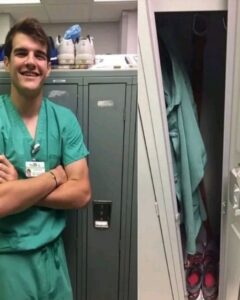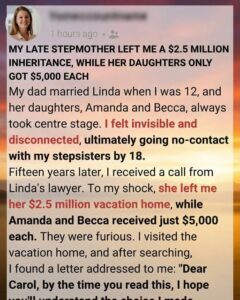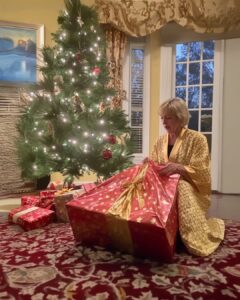My father-in-law passed away, and his lawyer gathered us to read the will. He had millions and two kids—my wife, Rina, and her brother, Orson. I expected nothing shocking. But then the lawyer began, “…his mountain cabin and assets, all go to Jason.” At first, I nodded politely, then it hit me—I’M JASON! Oh my God… It felt like a twisted prank. Then the lawyer added, “But with ONE CONDITION. You must live in the mountain cabin for one full year. Alone.”
My mind was spinning. Rina’s face turned pale, and Orson’s jaw dropped. He was the eldest, and everyone assumed he’d inherit everything. But my father-in-law, Desmond, had flipped the script. A year in the middle of nowhere? I had a decent job in the city, a wife, a mortgage, and dreams of kids. How could I just disappear for a year?
As the lawyer closed the folder, the room fell silent. Orson looked like he wanted to punch me. Rina’s eyes darted between me and the floor. Later that night, she told me she had no idea her dad planned this. She kept repeating, “My dad never said a word.” But what haunted me most was Desmond’s final words recorded in a video the lawyer played: “Jason, I saw something in you—something you don’t see in yourself. Prove to yourself you can survive without the world’s noise.”
It didn’t make sense to me. I was just a mid-level sales manager trying to keep a marriage afloat and save up for a bigger apartment. But Desmond had always taken me aside at family dinners, asked me about my dreams, and told me I was “meant for more.” I thought he was just being polite. Now it felt like he’d seen something I’d missed entirely.
Rina tried to hide her resentment, but I felt it every time we spoke. The first morning after the will reading, she barely looked me in the eye. I asked if she’d come visit if I took the challenge. She hesitated before saying, “I don’t know.” We both realized this condition was a wedge driven right through us.
Orson was less subtle. He called me two nights later, his voice slurred from drinking. “You think you’re better than me? You think Dad loved you more than his own son?” I tried to calm him down, but he hung up cursing. The tension with him festered in the days before I left. Rina and I agreed I’d try it for a month—if it was unbearable, I’d come back, and we’d figure out the legalities.
The drive up to the cabin felt surreal. The roads twisted through endless pines until I reached a log cabin perched on a ridge. It looked like a painting—silent, stoic, and waiting. I stood on the porch with a backpack, wondering if I’d lost my mind.
The first few weeks were harder than I imagined. I was used to takeout and conference calls, not chopping wood and hauling water. Nights were the worst. The silence felt deafening, like it was pressing on my ears. I tried calling Rina the first week, but the reception was bad, and she sounded distracted. I worried she’d slip away the longer I was gone.
A month passed, then two. I started to adjust to the routine. I learned to cook simple meals over the fireplace. I kept a journal, scribbling random thoughts and memories. I noticed the sky more, the way clouds drifted, the way the stars pierced the dark. Slowly, the cabin didn’t feel like a prison. It felt like… possibility.
One morning, I found an envelope nailed to the front door. Inside was a photo of Rina laughing with a man I didn’t recognize. My heart sank. Who took it? Was it real? I had no way to know. My first instinct was to race back to the city. But something about Desmond’s words echoed in my mind: “Prove to yourself.”
I called Rina. She denied everything. She said Orson had been visiting her, trying to convince her to divorce me. “He wants you to leave,” she confessed. I was torn. Part of me wanted to trust her. Part of me thought she was lying. I stayed up that night staring at the photo, wondering who left it, and why.
In the days that followed, I grew more suspicious of every sound outside. Was someone watching me? I kept the cabin locked, slept with a hatchet nearby, and jumped at shadows. But as weeks turned into months, I started to believe no one was coming. The fear faded, replaced by an odd sense of peace. I realized I’d spent most of my life worried about what others thought. Out here, there was only me—and I was starting to like the guy I was discovering.
By the sixth month, I’d lost weight, my mind felt clearer, and I felt more capable than I ever had. One afternoon, I found a box of old journals belonging to Desmond. They were tucked in the attic, dusty but intact. Reading them felt like hearing his voice again. He wrote about growing up poor, about building his business, about mistakes he’d made in his marriage. But what struck me most was a line scrawled in the margin: “The best gift you can give someone you love is the chance to find themselves.”
That night, I broke down and cried for the first time in years. I missed Rina terribly. I missed the warmth of our couch, the smell of her hair, the jokes we used to share. But I also knew I was becoming someone new—someone stronger. Someone Desmond might’ve been proud of.
Around the ninth month, I got a letter from Rina. She said she’d been seeing a counselor, that Orson had moved back to the West Coast, and she wanted to visit me. I felt a cautious hope spark. When she arrived, she looked different—tired but softer, like the walls between us had thinned. We hugged so tightly I thought we’d never let go.
She stayed a weekend. We walked through the woods, cooked over the fire, and talked honestly for the first time in years. She admitted she’d almost given up on us. I admitted I’d spent years hiding behind work to avoid real connection. We laughed about how ridiculous our fights used to be. For a moment, it felt like we might actually come out stronger.
But there was one last twist waiting. On the final day of my year, I got a call from the lawyer: Orson had filed a legal challenge, claiming I broke the will’s condition because Rina stayed with me overnight. Technically, the will said “alone,” but nothing else. I felt sick. Was this all for nothing?
I hired a small-town attorney, terrified I’d lose everything after everything I’d been through. At the hearing, I explained how Rina had only visited briefly and I’d spent the year living alone. The judge paused, then asked: “Did you find what your father-in-law wanted you to find?” I told her about the journals, the quiet, the changes I’d felt inside. She looked at me kindly and said, “That’s the point. Challenge denied.”
I almost collapsed with relief. Rina ran up to me outside the courthouse, tears streaming down her face. Orson stood on the steps, his expression unreadable. He walked up, looked me in the eyes, and just said, “Dad was right about you.” Then he shook my hand. It felt like a tiny miracle.
We went back to the cabin for a few more days, trying to soak in the peace before returning to the city. But something had changed in both of us. We agreed to sell the city apartment, move into the cabin for good, and start over. The place that had once felt like punishment had become our sanctuary.
I started a small business online, selling handmade wooden crafts and sharing stories about cabin life. Rina began teaching yoga retreats in the clearing behind the cabin. We hosted couples looking to reconnect, using our own experience as inspiration. Every night, we’d sit on the porch watching the sunset, grateful for a father-in-law who saw what we couldn’t.
A year later, I found another note tucked in Desmond’s journals. It was addressed to “whoever found themselves here.” It said, “If you learned to love the quiet, you learned to love yourself. If you learned to love yourself, you can truly love others.”
Looking back, I realized Desmond’s challenge wasn’t just about survival. It was about stripping away everything superficial, facing the raw truth of who I was, and learning to embrace it. The silence forced me to confront fears I’d buried for years. It healed wounds I didn’t know I carried. And it gave me the courage to love Rina fully, honestly, and without holding back.
I’ve come to believe the real inheritance wasn’t the money or the cabin. It was the chance to rebuild my life, my marriage, and myself from the ground up. Desmond knew what he was doing. He didn’t leave me a fortune—he left me a future.
If you ever feel like the world is too loud, like you’re drowning in other people’s expectations, remember this: sometimes you have to step away to find your way back. Sometimes you have to lose everything familiar to discover who you really are. And sometimes, the people who challenge you the most are the ones who love you the deepest.
If this story moved you or made you reflect on your own journey, please share it with someone who needs to hear it—and don’t forget to like this post. You never know who might find hope in your share.




